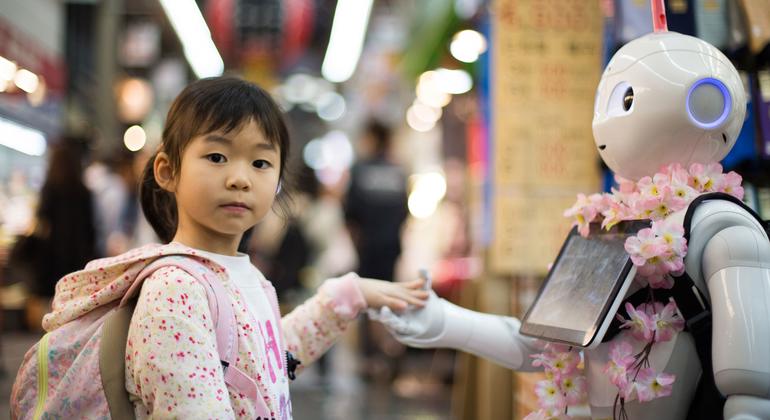The United Nations Conference on Trade and Development (UNCTAD) has recently released its Technology and Innovation 2025 Report, titled “Inclusive Artificial Intelligence for Development.” This document has become a key tool for policymakers seeking to address the complex landscape of artificial intelligence (AI) and design policies that promote inclusive and equitable technological development.
The report highlights three key components for the advancement of AI: infrastructure, data, and skills. These aspects allow for a comprehensive socio-economic view of the technology and provide a deep analysis of the requirements and policies that need to be implemented. It is estimated that the artificial intelligence market will reach a value of $4.8 trillion by 2033, a significant increase compared to 2023 when it already represented 7% of the global high-tech market, a figure projected to rise to 29% in the next decade.
However, the report also emphasizes an alarming concentration of artificial intelligence development. The United States and China dominate nearly 33% of publications on the topic and are responsible for 60% of patents in this field. In 2022, a small number of 100 companies funded 40% of artificial intelligence research, with China standing out among developing countries.
Rebeca Grynspan, Secretary-General of UNCTAD, warns that while artificial intelligence has the potential to drive the fulfillment of the Sustainable Development Goals, its unequal distribution could exacerbate existing inequalities. AI has the capacity to transform critical sectors such as agriculture and energy, optimizing production and supply chains, as well as improving urban planning and water management. However, the rapid evolution of this technology faces challenges that governments have not yet adequately addressed, potentially deepening global divisions.
Despite these difficulties, some developing countries, such as Brazil, China, India, and the Philippines, show remarkable potential in the AI sector. It is estimated that this technology could impact 40% of jobs worldwide, and particularly in advanced economies, it is expected to improve 27% of these, enhancing human capabilities rather than replacing human work. In particular, the Philippines has seen a 30% increase in its AI developer group between 2022 and 2023.
The report advocates for an artificial intelligence that prioritizes people, promoting development through a collaborative global effort in which all countries play an active role. Currently, AI governance is divided and controlled by a few nations, while many developing nations, which will be heavily impacted by this technology, often lack a voice in its regulation.
The United Nations has taken an active role in adopting measures to address this situation, promoting initiatives such as the Pact for the Future and the Global Digital Pact, which aim to improve international governance of artificial intelligence for the benefit of all humanity.
via: MiMub in Spanish
